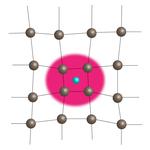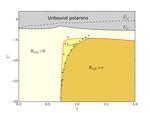About
Note: This website is no longer maintained. My personal webpage can now be found at https://sous.yale.edu/profile/john-sous.
Since July 2024, I am an Assistant Professor in the Department of Applied Physics and the Energy Sciences Institute (ESI) at Yale University. Besides Applied Physics and ESI, I am also affiliated with the Yale Quantum Institute (YQI) and Yale’s Institute for Foundations of Data Science (FDS). From July 2023 to June 2024, I was an Assistant Professor at the University of California San Diego (UCSD). Before that I was a Gordon & Betty Moore Postdoctoral Fellow at Stanford University, before which I was a Materials Research Science and Engineering Center (MRSEC) Postdoctoral Fellow at Columbia University. I obtained a Ph.D. in Physics from the University of British Columbia (UBC) in 2019.
My research focus lies in the fields of condensed matter, quantum physics and artificial intelligence (AI). One way to view these seemingly disparate areas is through the lens of study of systems with large number of degrees of freedom in which correlations act to stabilize novel behavior, with functionalities which can be utilized in future-generation technologies, such as energy materials and energy-efficient learning systems. The goal of this research is to gain a general, unifying understanding of interacting statistical systems. I progress in this effort by studying model systems that capture experiment in some instances, or by identifying universal features common amongst many experiments in others. I am particularly interested in correlated quantum matter (quantum materials and ultracold matter) and dynamical non-linear systems (optically driven quantum systems and models of neural learning). My approach to researching these systems relies on a carefully tailored combination of numerical and analytical techniques.
When not working, I enjoy running, sometimes biking and absorbing culture.
Announcements: I am actively looking for students and postdocs. Yale is very interdisciplinary, so students and postdocs are often able to work with faculty in other departments. I am currently building a group with students and postdocs working on physics, AI or both. You may just fit into one area or the other; you don’t need to know or work on both (nonetheless interaction with different group members and interdisciplinary work will always be encouraged).
- Students and Postdocs interested in AI: I am currently working on projects in statistical machine learning and AI. Examples include mechanistic interpretability theory of transformers on reasoning tasks, theory of generalization in energy-based diffusion models with score matching, and advancing AI capabilities for solving quantitative problems, including problems in physics (these often do not require any specialized knowledge of advanced physics).
- Students: If you are already enrolled in a program at Yale in Applied Physics, Physics, Applied Math, Statistics and Data Science, or Computer Science, and interested in working on AI, please reach out to me directly. A background in physics is not required to do this work (this is not to discourage you from applying if you have a background in physics; you should still apply). If you are interested in joining Yale and working with me, please let me know and apply to the Ph.D. program in Applied Physics or reach out to me to identify other departments with good fit where you can apply. Opportunities for co-supervision with other faculty members in other departments and/or collaborating with colleagues at the Flatiron Institute and/or industry labs exist.
- Postdoc applicants: Please write to me if you are interested to discuss possibilities. Additionally, there are also prestigious postdoctoral fellowships available through Yale and externally that would enable you to work with me. Examples of fellowships at Yale include the Institute for Foundations of Data Science (FDS) Postdoctoral Fellowship, the Wu Tsai Institute Postdoctoral Fellowship and the Tony Massini Postdoctoral Fellowship. Examples of external fellowships include NSF-funded postdoctoral fellowships such as the Mathematical Sciences Postdoctoral Research Fellowship (MSPRF) and the Mathematical and Physical Sciences Ascending Postdoctoral Research Fellowship (MPS-Ascend). Please reach out to me to discuss support for fellowship applications.
- Students and Postdocs interested in Physics: I am currently working on projects in quantum condensed matter with applications to materials, energy and quantum computation. Examples include high-temperature superconductivity, light-matter interaction, polaronic transport, quantum simulation, and machine learning of quantum physics.
- Students: If you are already enrolled in a program at Yale in Applied Physics or Physics, and interested in working on problems in physics or at the interface between physics and AI, please reach out to me directly. If you are interested in joining Yale and working with me, please let me know and apply to the Ph.D. program in Applied Physics (or reach out to identify other departments with good fit where you can apply). Opportunities for collaborations with collegues at Yale and/or at the Flatiron Institute exist.
- Postdoc applicants: Please write to me if you are interested to discuss possibilities. There are also prestigious postdoctoral fellowships available through Yale, such as the Yale Quantum Institute (YQI) Postdoctoral Fellowship. Please reach out to me to discuss support for fellowship applications.
Minorities including but not limited to students from underrepresented nations (such as in the Middle East and Africa) are encouraged to reach out.
Education
Ph.D., Theoretical Physics, 2019
The University of British Columbia
M.Sc., Chemical Physics, 2013
University of Waterloo
Awards, selected
AFOSR Young Investigator Program Award
Gordon & Betty Moore Postdoctoral Fellowship
Materials Research Science and Engineering Center (MRSEC) Postdoctoral Fellowship
Deutscher Akademischer Austauschdienst (DAAD) Short-Term Research Grant Scholarship
Institute for Theoretical Atomic, Molecular, and Optical Physics (ITAMP) Visiting Fellowship
The University of British Columbia Four Year Doctoral Fellowship.
Experience
Assistant Professor
Yale University
Assistant Professor
University of California, San Diego
Postdoctoral Research Scientist
Geballe Laboratory for Advanced Materials (GLAM), Stanford Institute for Theoretical Physics (SITP) and Department of Physics, Stanford University
Postdoctoral Research Scientist
Center for Precision Assembly of Superstratic and Superatomic Solids and Departments of Physics & Chemistry, Columbia University
Deutscher Akademischer Austauschdienst (DAAD) Fellow
Department of Physics, Technical University of Munich
Visiting fellow
Institute for Theoretical Atomic, Molecular, and Optical Physics (ITAMP), Harvard-Smithsonian Center for Astrophysics and Department of Physics, Harvard University
Institute for Theoretical Atomic, Molecular, and Optical Physics (ITAMP) Visiting Fellow
Institute for Theoretical Atomic, Molecular, and Optical Physics (ITAMP), Harvard-Smithsonian Center for Astrophysics and Department of Physics, Harvard University
Ph.D. student
Department of Physics & Astronomy and Stewart Blusson Quantum Matter Institute (SBQMI), The University of British Columbia
M.Sc. student
Department of Chemistry, University of Waterloo
Research
Quantum matter
Non-equilibrium quantum dynamics
Quantum-driven transitions
Featured Papers
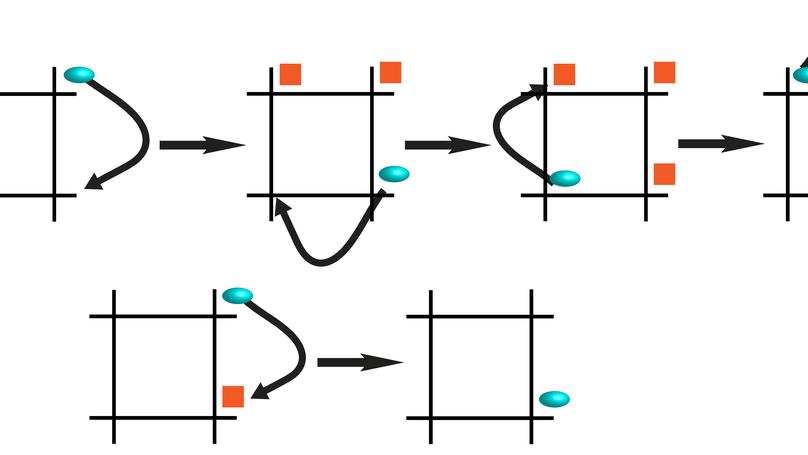
Fractons from polarons
Fractons, as a new type of exotic quasiparticle, have attracted immense attention due to their unique properties. Here, we construct a connection between fractons and polarons. We derive microscopic situations in which polarons and their two-body bound states, known as bipolarons, map exactly on to fractons and their two-body counterparts, dipoles. Highlighted as Editor’s Suggestion.
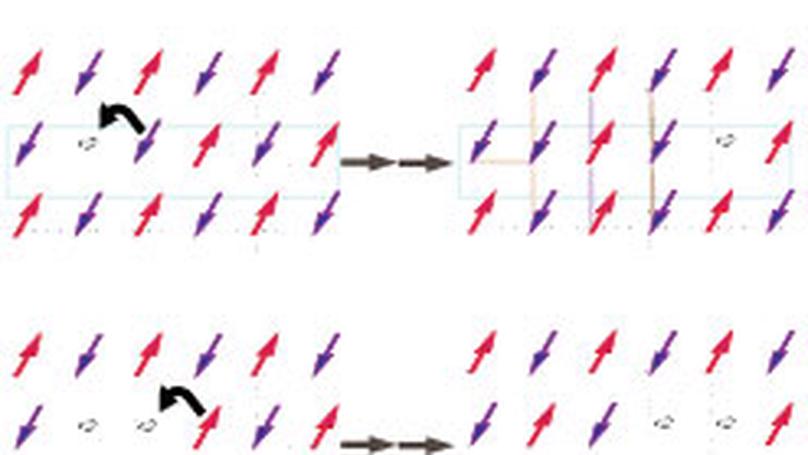
Fractons from frustration in hole-doped antiferromagnets
Frustrated fractons: Fractons, a new type of quasiparticles, have attracted attention due to their unusual mobility constraints. But, where can we find fractons in the lab? We show that frustration of the background due to hole motion in hole-doped antiferromagnets produces fractonic quasiparticles.
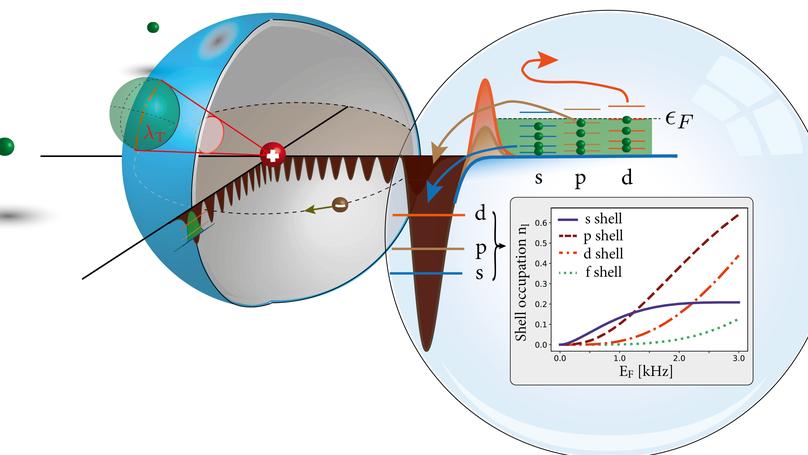
Rydberg impurity in a Fermi gas: Quantum statistics and rotational blockade
Rydberg Fermi polaron? We show that an atom excited to a Rydberg state in an atomic Fermi gas realizes an exotic state, dubbed Rydberg Fermi superpolaron, in which the Rydberg atom encircles the background atoms in the space between its nucleus and it Rydberg electron, and the Pauli principle manifests as a rotional blockade to excitations. See https://en.wikipedia.org/wiki/Rydberg_polaron for more information about Rydberg polarons.
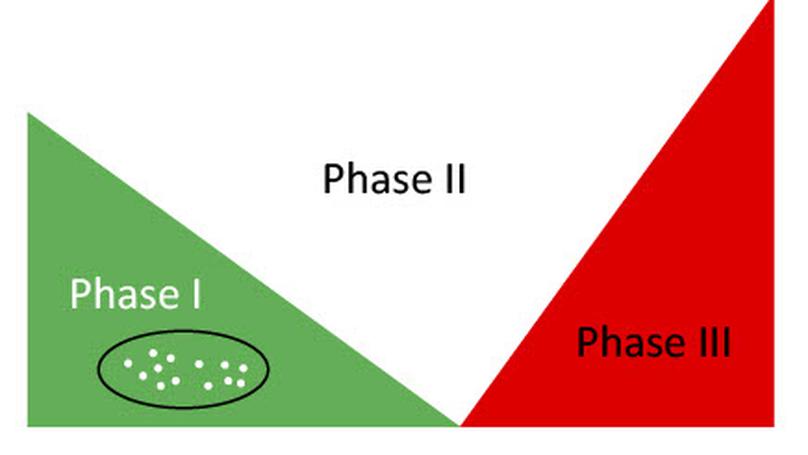
Extrapolating quantum observables with machine learning: Inferring multiple phase transitions from properties of a single phase
Machine learning is a powerful tool to analyze complex data, but can it help reveal unexplored domains of knowledge? We answer this question in the affirmative, showing in this work that one can predict phase transitions using Gaussian process extrapolation across parameter space.
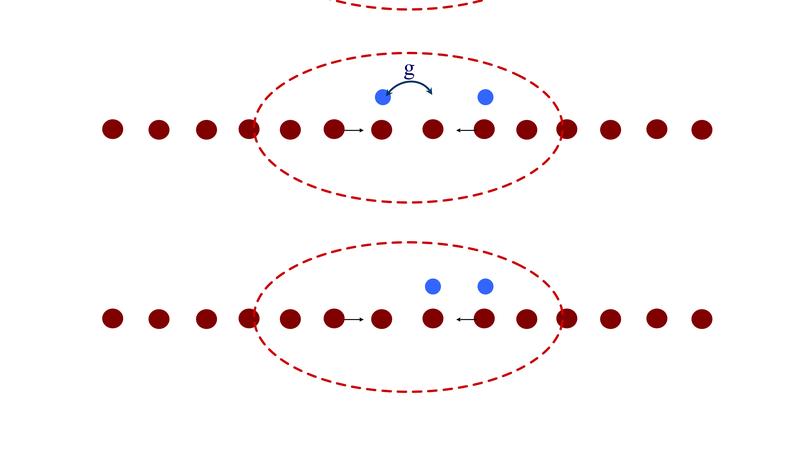
Light bipolarons stabilized by Peierls electron-phonon coupling
Bipolarons shed off extra weight: Normally two polarons form a bipolaron by increasing their net potential energy. As a result, the two polarons tend to remain spatially close to each other, and the bipolaron becomes heavy. Here, we show that polarons can bind by increasing their kinetic energy, leading to light bipolarons and a possible new mechanism for high-temperature superconductivity.
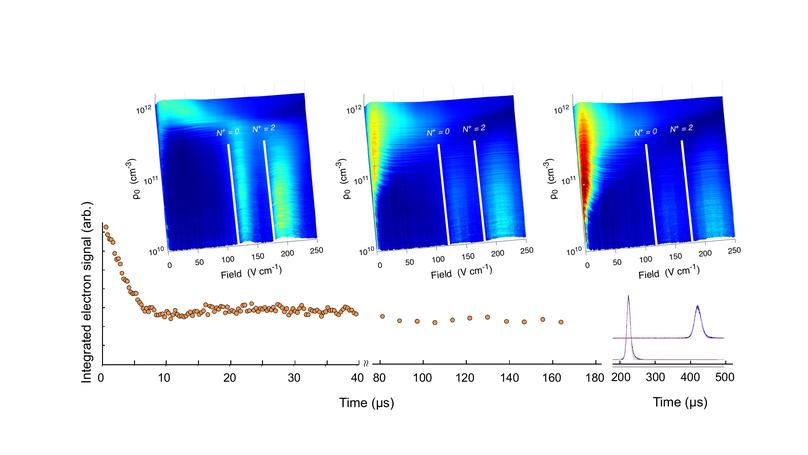
Possible many-body localization in a long-lived finite-temperature ultracold quasineutral molecular plasma
Quantum mechanics freezes a hot plasma: We show that Rydberg molecules in a quenched molecular plasma interfere to form a stable long-lived localized state. Randomness in the Rydberg plasma acts decisively to freeze the dynamics of Rydberg excitations in a process suggestive of many-body localization, explaining recent experimental observations.
Invited Talks, selected
Outreach and more
Thoughts shared with the world
Exclusive meritocracy: A barrier to equity and scientific advancement
Contact
- john.sous@yale.edu
- Becton, New Haven, CT 06511
